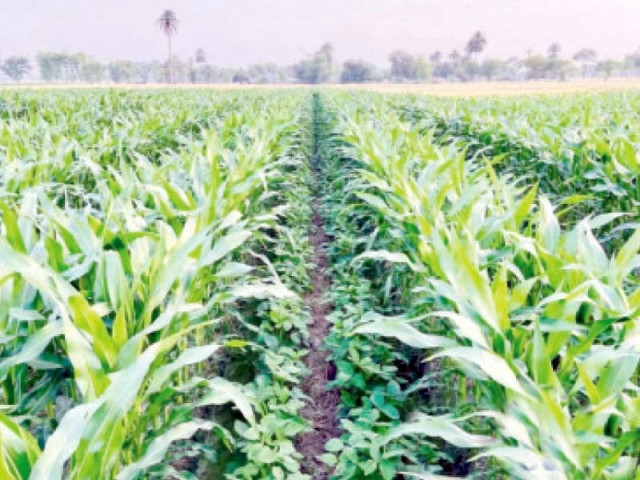Pakistan likely to reduce nearly half of soybean import bill
According to analysis Pakistan could reduce its soybean import bill by 30% within one season

A consultative session on growing soybean under strip intercropping technology with industrialists and farmers of Bahawalpur, organised by the Islamia University of Bahawalpur (IUB) in collaboration with Bahawalpur Chamber of Commerce and Industry, was held at Baghdadul Jadeed Campus, IUB.
The National Research Centre of Intercropping Director Dr Muhammad Ali Raza gave a detailed briefing on the cultivation of maize and soybeans through strip intercropping technology.
“By cultivating 20% of the area through intercropping of soybean with maize and sugarcane in spring, Pakistan could reduce its soybean import bill by 30% within one season. In addition, in the same year, adopting soybean-wheat strip intercropping technology on 10% of the wheat cultivated area, Pakistan could reduce another 15% of its soybean import bill. All in all, Pakistan can reduce 45% of its soybean import bill within one year by just adopting this technology on its 10-20% area,” he analysed.
Maize-soybean intercropping has significant potential to increase local soybean production in Pakistan without reducing the existing maize production. “From the successful experience from Sichuan Agricultural University (SAU), China, high yielding soybean varieties can be obtained, which will save valuable foreign exchange spent on importing edible oil and poultry feed,” Dr Raza said.
“The information related to the Chinese experience is very valuable, and it is very gratifying that the intercropping experience has been carried out by China’s Sichuan Agricultural University under the leadership of Prof Yang Wenyu. This project has also been included in the CPEC projects, thanks to which new development opportunities will be available for Pakistan,” said Bahawalpur Chamber of Commerce and Industry President Hafiz Mohammad Younis. He also appraised Prof Dr Athar Mahboob of the IUB Vice Chancellor’s vision to improve the country’s agriculture and economy.
A consultative meeting between farmers and industrialists regarding soybean intercropping will be held in Multan as well.
THE ARTICLE ORIGINALLY APPEARED ON THE CHINA ECONOMIC NET
Published in The Express Tribune, September 17th, 2022.
Like Business on Facebook, follow @TribuneBiz on Twitter to stay informed and join in the conversation.



















COMMENTS
Comments are moderated and generally will be posted if they are on-topic and not abusive.
For more information, please see our Comments FAQ